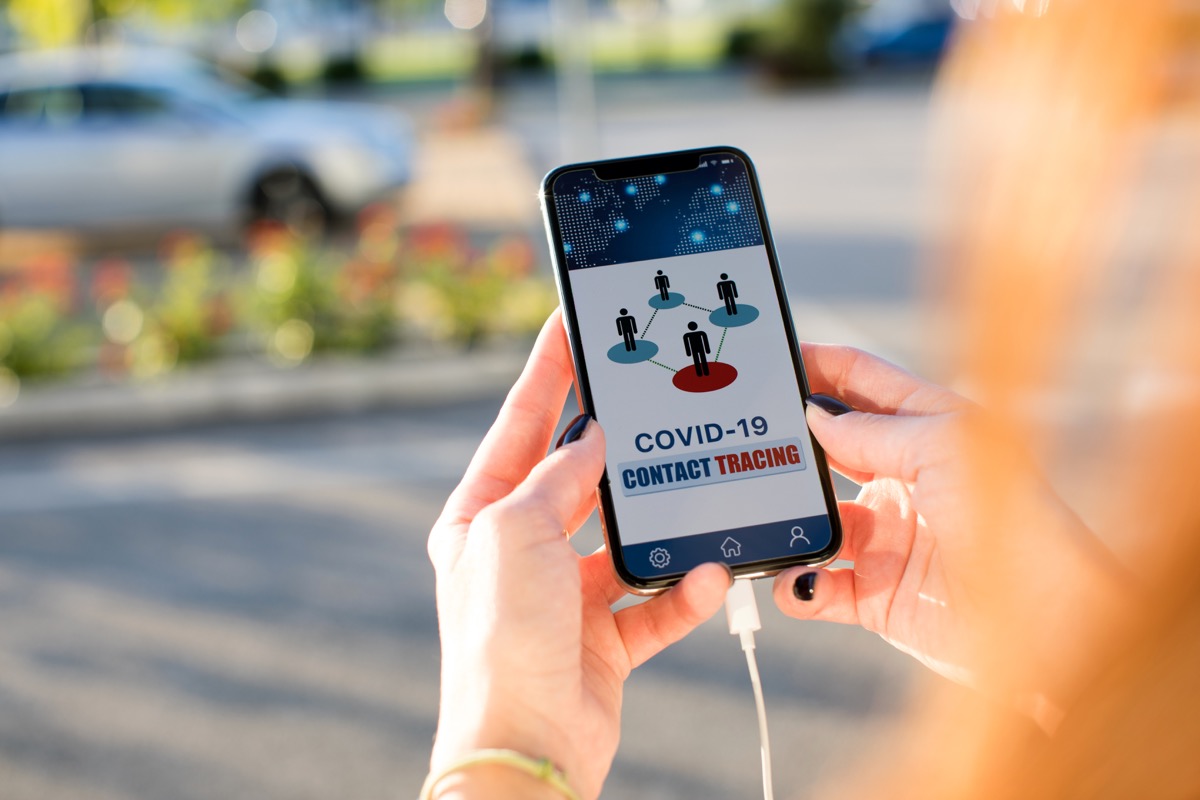While other countries—like Iceland, India, Australia, Qatar, France, and as of June 16, Italy and Germany—have made this technology part of their national health and safety measures, the United States has held off due to digital privacy laws. In fact, 71 percent of Americans say that they would not download a COVID-19 contact-tracing app, based on a survey done in June by computer security software company Avira. The concern is not surprising when you look at the increase in online attacks as the world went virtual during quarantine. Friends, coworkers, and classmates experienced “Zoombombing” as hackers wormed their way into private video calls. And by the end of March, cybercriminals had created more than 40,000 high-risk websites and domains with the keywords “corona” or “COVID” to trick unsuspecting internet users, according to a report by Palo Alto Networks. RELATED: For more up-to-date information, sign up for our daily newsletter. The survey also cites that people consider contact-tracing apps a greater threat to security than identity theft or cybercrime, especially if that data is stored where authorities could access it. Only 14 percent of Americans said they trust the government with their personal information, while 32 percent trust tech companies. Healthcare workers and government employees are the most dubious, with a whopping 84 percent saying they would not use a contact-tracing app. “COVID contact tracing apps could fail before they launch if developers don’t communicate to the public how they plan to protect people’s privacy,” Avira CEO Travis Witteveen said in a statement.ae0fcc31ae342fd3a1346ebb1f342fcb Cyber security concerns aside, research points to the effectiveness of these apps. An April study by the University of Oxford found that the coronavirus pandemic could be stopped in its tracks if roughly 56 percent of the population used contact-tracing apps. Even the smallest amount of engagement would help as one infection is prevented for every one to two users. If the United States were to introduce a contact-tracing app, it would have to be voluntary and secure. Instead of using GPS data or credit card activity to track infections—which many considered a breach of privacy when South Korea did it—companies would have to implement safer alternatives. For instance, Google and Apple teamed up to create an app that would use a phone’s Bluetooth technology (a much lower signal than GPS). The app also makes users anonymous, identifying them by a code and not by name, for an extra level of protection. Methods like this could prove essential in finding a solution that would eventually end COVID-19 once and for all. And for more details on how coronavirus spreads, This Is Who Is Transmitting 80 Percent of Coronavirus Cases, Study Says.
